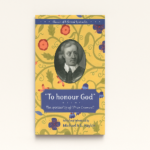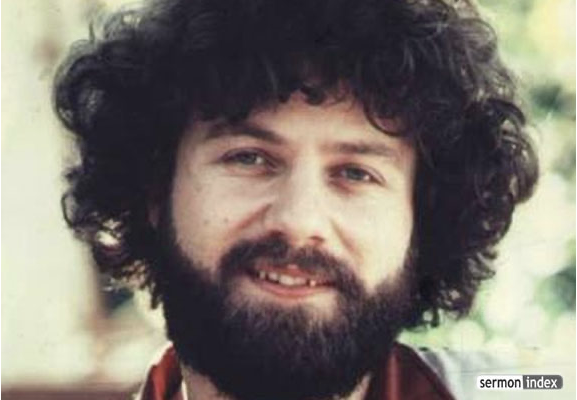My anxieties get excited when I go to bed. The sound of my head hitting the pillow is their alarm to wake up and send my mind spiralling about things I can’t control.
I tell myself, “Trust the Lord and go to sleep.” That’s easy to believe when I can pinpoint clear signs of God’s presence. But can God be trusted when life is chaos? When God seems absent how can I trust him and rest?
The Bible leads us to meditate on God’s providence so that we will not freak out when life is chaos.
Providence describes the purpose of God in history. John Piper’s definition is a good one: Providence is God’s purposeful sovereignty. The Bible shows us that God governs all things, and his purpose is his glory and the good of his people (Gen 50:20 & Rom 8:28-30). To contemplate God’s providence, we may linger in Romans 8, considering the scope and certainty of God’s purposes. Or maybe we sit with Psalm 23, meditating on his goodness in leading us along a hard path. But Esther 6 is a great passage for contemplating God’s providence when God seems invisible.
The Book of Esther never mentions God by name. Esther lived in the time of exile when Israel was under Persian rule under King Ahasuerus. Haman, the king’s right-hand man, gets royal permission to annihilate the Israelites. God seems absent and his people seem destined for a swift and sudden end.
In many ways, Esther resonates with our lives today. Day after day we go through the motions, and unless we are intentional, God is not referenced. On top of that, the gospel doesn’t seem to make any progress. Society feels under the control of godless people, who call good evil and praise evil as if it were good. It’s not hard to assume God is absent and his purpose has failed.
Esther 6 gives us hope by reminding us that God is never absent, and never on his heels. Unknown to the characters in the story, God works for Esther and his people. Esther 6 reveals the invisible hand of God, helping us trust his unseen providence.
Coincidence or Providence?
Many so-called coincidences happen in Esther 6. Ahasuerus happens to have a sleepless night. He happens to ask for the book of memorable deeds. The scribes happen to read from an obscure place about an event five years ago. It just so happens that Mordecai never received a gift for saving the king. Haman happens to be in the court at the time, so he has to carry out the command to honour Mordecai, his sworn enemy. After plotting to destroy Mordecai, Haman proclaims Mordecai’s honour throughout the city. This all takes place the night before Esther pleads with the king to rescue Mordecai’s people from Haman’s horrible, decreed massacre! Coincidence? I think not.
These so-called coincidences are the purposeful providence of God. Hidden from the characters, but blatant to readers. John Calvin describes a Christian reaction to coincidence this way, “what for us seems a contingency, faith recognizes to have been a secret impulse from God.” Every “coincidence” happens according to the wisdom and will of the Lord. What the world calls coincidence, Christians call providence.
Even without a whisper of his name on the page, God’s hand is clear in the moment that changes everything for Esther and her people.
God’s Providence and Complete Rescue
Providence turns the tale. Haman has been the terror of God’s people, but now they fill him with fear. “Haman told his wife Zeresh and all his friends everything that had happened. His advisers and his wife Zeresh said to him, “Since Mordecai is Jewish, and you have begun to fall before him, you won’t overcome him, because your downfall is certain.” While they were still speaking with him, the king’s eunuchs arrived and rushed Haman to the banquet Esther had prepared” (6:13-14). If Esther were a movie, this moment would be scored by the low boom of solemn drums as the gallows inch closer to Haman.
God will not only save his people he will completely overthrow their enemy. He turns the tables entirely just like when Pharaoh and Egypt gave their treasures to Moses and Israel. Calvin says the power of God’s providence
shows itself clearly when the ferocity of the impious, in everyone’s opinion unconquerable, is overcome in a moment, their arrogance vanquished, their strongest defenses destroyed, their javelins and armor shattered, their strength broken, their machinations overturned, and themselves fallen of their own weight; and when their audacity, which exalted them above heaven, lays them low even to the center of the earth; when, conversely the humble are raised up from the dust, and the needy are lifted up from the dung heap [Ps. 113:7]; the oppressed and afflicted are rescued from their extreme tribulation; the despairing are restored to good hope; the unarmed, few and weak, snatch victory from the armed, many and strong.
This gives us hope and peace. Powerful people scheming to destroy the gospel and God’s people cannot out-wit God. As John reminds us in Revelation, Jesus has cast down Satan and obliterated his power to accuse believers and deceive the nations (Rev 12:10-11, 20:2-3). No scheme of man will override the providence of God for his people.
A Trustworthy Providence
“Trust the Lord” can put my anxieties to bed because, as Esther 6 reminds me, God doesn’t sleep. He’s attending to the very things keeping me awake and, therefore, I can rest. None of the human “heroes” have a role in the event that changes everything. Esther and Mordecai are nowhere near the King that night. They are likely asleep. While their heads lie on their pillow, God turns the King’s heart to favour them.
Knowing God’s providence doesn’t guarantee easy sleep. It isn’t Nyquil. We may go to bed every night feeling like the Hamans of the world will still win. Trusting in God’s providence isn’t magic. It’s a daily habit of remembering the gospel.
The gospel is the greatest evidence of God’s providence. God plans, accomplishes and applies our salvation (Eph 1:3-14). God’s good providence was at work before we were even born. While we were in the darkness of sin, God saw to it that Jesus would reconcile “you by his physical body through his death, to present you holy, faultless, and blameless before him” (Col 1:22). Can you trust God’s heart when you can’t see his hand? The gospel cries, “Yes!”
Puritan Pastor John Flavel, in his book The Mystery of Providence, gives practical counsel for how Christians can learn to trust God’s providence. He says, “Set the faithfulness of the Lord before you under the saddest providences… Eye the all-sufficiency of God in the day of affliction. See enough in him still, whatever is gone. Here is the fountain still in full as ever.” The life-giving fountain of God’s grace never runs dry. No matter how much he pours out and how much we drink from it, the fountain of God’s good providence is always overflowing.
Trusting the Lord puts my anxiety to bed because God will always be, and will always provide, everything I need. Rather than sleeplessly obsessing over our anxieties, God invites us to remember his providence and rest in his wise, powerful, and perfect plan.
My anxieties may still wake up every night, but I can tuck them in by remembering God’s good providence. When we cannot see his hand, lean on his providence.
























